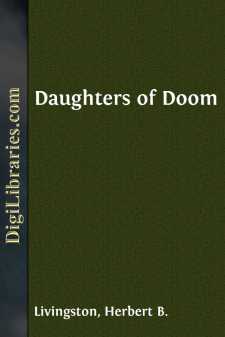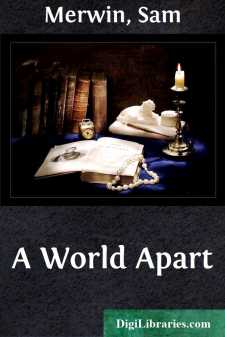Categories
- Antiques & Collectibles 13
- Architecture 36
- Art 48
- Bibles 22
- Biography & Autobiography 813
- Body, Mind & Spirit 142
- Business & Economics 28
- Children's Books 17
- Children's Fiction 14
- Computers 4
- Cooking 94
- Crafts & Hobbies 4
- Drama 346
- Education 46
- Family & Relationships 57
- Fiction 11829
- Games 19
- Gardening 17
- Health & Fitness 34
- History 1377
- House & Home 1
- Humor 147
- Juvenile Fiction 1873
- Juvenile Nonfiction 202
- Language Arts & Disciplines 88
- Law 16
- Literary Collections 686
- Literary Criticism 179
- Mathematics 13
- Medical 41
- Music 40
- Nature 179
- Non-Classifiable 1768
- Performing Arts 7
- Periodicals 1453
- Philosophy 64
- Photography 2
- Poetry 896
- Political Science 203
- Psychology 42
- Reference 154
- Religion 513
- Science 126
- Self-Help 84
- Social Science 81
- Sports & Recreation 34
- Study Aids 3
- Technology & Engineering 59
- Transportation 23
- Travel 463
- True Crime 29
Sort by:
Deep in space lay a weird and threatening world. And it was there that Ben Sessions found the evil daughters . . . Beyond Ventura B there was no life; there was nothing but one worn out sun after another, each with its retinue of cold planets and its trail of dark asteroids. At least that was what the books showed, and the books had been written by men who knew their business. Yet, despite the books...
more...
CHAPTER I. THE LONE PASSENGER That evening the down train from London deposited at the little country station of Ramsdon but a single passenger, a man of middle height, shabbily dressed, with broad shoulders and long arms and a most unusual breadth and depth of chest. Of his face one could see little, for it was covered by a thick growth of dark curly hair, beard, moustache and whiskers, all overgrown...
more...
by:
William Le Queux
CHAPTER I The scene was Dean Street, Soho, and this story opens on a snowy winter night in the January of 1888. The modern improvements of Shaftesbury Avenue were as yet unmade, and the foreign district of London had still to be opened up. A cold north wind was blowing on the few pedestrians whom necessity, or some urgent obligation, had compelled to tramp the pavements laden with snow. A few cabs and...
more...
by:
Michael Barrett
I PERSONAL Forest and meadow and hill, and the steel-blue rim of the ocean Lying silent and sad, in the afternoon shadows and sunshine. (Longfellow—"Miles Standish") Val and I, being twins, have always been looked upon as inseparables. True, we have been often forced apart during life's course; yet, somehow, we have always managed to drift back again into the...
more...
by:
Various
It was that solemn hour of the night, when, in the words of the poet, "creation sleeps;"—a silence as of the dead reigned amid the streets and alleys of the great city of Dublin, interrupted, ever and anon, only by the solitary voice of the watchman, announcing the time, and the prospects of fair or foul weather for the ensuing day. Even the noise of carriages returning from revels and...
more...
INTRODUCTION. THE LAWS OF GEOLOGICAL ACTION. Under the general title of "Geology" are usually included at least two distinct branches of inquiry, allied to one another in the closest manner, and yet so distinct as to be largely capable of separate study. Geology,[1] in its strict sense, is the science which is concerned with the investigation of the materials which compose the earth, the...
more...
Gefty Rammer came along the narrow passages between the Silver Queen's control compartment and the staterooms, trying to exchange the haggard look on his face for one of competent self-assurance. There was nothing to gain by letting his two passengers suspect that during the past few minutes their pilot, the owner of Rammer Spacelines, had been a bare step away from plain and fancy gibbering. He...
more...
PREFACE. This book was prepared by instruction of the Norwich Public Library Committee, and it is now published as a souvenir of the sixtieth anniversary of the opening of the present Public Library, which will take place on March 16th, 1917. Norwich occupies a unique place in the history of libraries: it has the distinction of having established in 1608 one of the earliest provincial public...
more...
by:
Charles Berger
You hear a lot of talk these days about secret weapons. If it's not a new wrinkle in nuclear fission, it's a gun to shoot around corners and down winding staircases. Or maybe a nice new strain of bacteria guaranteed to give you radio-active dandruff. Our own suggestion is to pipe a few of our television commercials into Russia and bore the enemy to death. Well, it seems that Ivar Jorgensen...
more...
by:
Sam Merwin
It wasn't much of a bump. The shock absorbers of the liquid-smooth convertible neutralized all but a tiny percent of the jarring impact before it could reach the imported English flannel seat of Coulter's expensively-tailored pants. But it was sufficient to jolt him out of his reverie, trebly induced by a four-course luncheon with cocktails and liqueur, the nostalgia of returning to a...
more...











